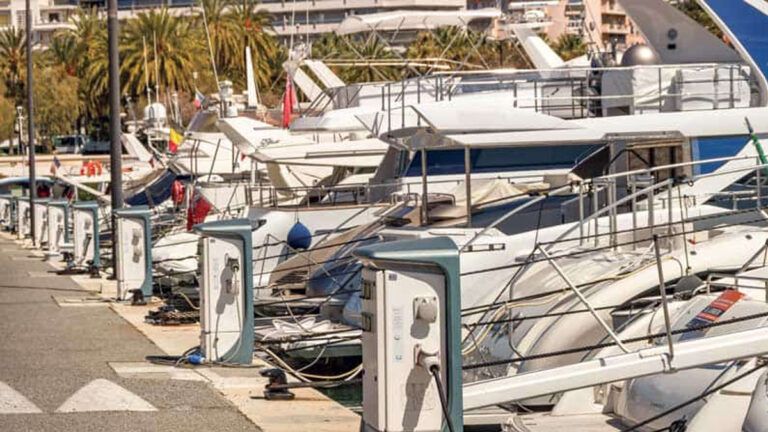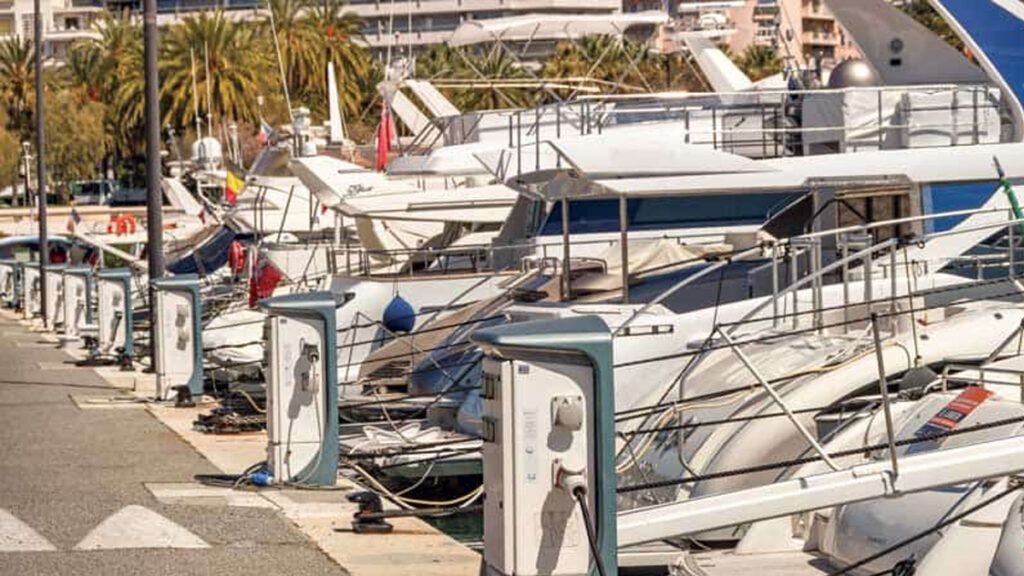Safe Habour, Electrified!
These are indeed exciting times for the vessel designers and harbour craft manufacturers. There is an atmosphere of change that is aligned with an acknowledged need to remain competitive in the face of pressing challenges posed by the Covid-19 and the onset of the post Covid-19 era is dawning upon us with a need to prepare for and be ready to “live with the virus”. This is especially so, in ports with the conundrums imposed by the prevalence of cybersecurity ‘hacks’ and recurring supply chain crises, worldwide. Logjams caused in ports by vessels unable to move off with their cargo is not an uncommon occurrence. Then there is the impact of trade disputes, export bans have resulted in price rises in commodities and fuels such as coal supplies and LNG shipments, vital to the energy security of nations.

Within the marine and maritime port industries, there is increasingly the ‘tacit’ admittance by industry players that innovation, decarbonisation, digitalisation, and electrification hold key to resilient organisations and practices, whether in port operational technology or industrial IT.
The Maritime and Port Authority of Singapore (MPA) and the Singapore Maritime Institute (SMI) have awarded funding to three consortiums led by Keppel FELS Limited, SeaTech Solutions and Sembcorp Marine, and comprising a total of 30 enterprises and research institutions, to research, design, build and operate a fully electric harbour craft over the next five years. These incipient projects will demonstrate both commercial and technical viability of specific use cases for full electric harbour craft and will support Singapore’s broader plans to mitigate greenhouse gas (GHG) emissions by the maritime transport sector.
Senior Minister of State for Transport, Mr Chee Hong Tat, said, “To build a sustainable hub port, we plan for the 1,600-harbour craft operating in our waters to run on low-carbon fuels. One possible solution is the electrification of our harbour craft fleet, which reduces carbon emissions and has zero pollution.”
Organisations such as NTU’s Maritime Energy & Sustainable Development Centre of Excellence (MESD) are carrying out the necessary research towards the electrification of harbour craft, in a myriad of ways that include shore and vessel power system considerations, future energy options, and Methanol as a marine fuel.
According to the MESD, the electrification of harbour craft (HC) explores one or a combination of possibilities such as electric propulsion and systems, energy storage systems, hybrid propulsion or power and shore power.
Electrification’s benefits go beyond carbon emissions reduction, improving the efficiency of internal combustion engines, achieving high torque at low low-speed engine mode, reducing maintenance costs, achieving zero ship-board emissions in full full-electric mode, and mitigating noise and vibration levels.
The MESD Webinar 2020: Reducing GHG Emissions for Singapore Harbour Craft addressed some of the issues concerning the electrification of harbour vessels.
Singapore HC have been using conventional system for decades. According to the MESD, in the near term, hybrid is more feasible for harbour craft with space to accommodate additional machinery. The choice of hybrid or full-electric also depends on the operating profiles of the HC. In their studies, the MESD suggests an in-depth understanding of the operating profile of each vessel type, before determining the alternate feasibility. These are exciting and relevant findings, and one awaits with bated breath for the times when electrified harbour craft ply Singapore’s waters.


